|
Leaf mine on Helleborus lividus Corsican Hellebore
|
|
| John Showers |
Posted on 24-09-2015 15:53
|
|
Member Location: Posts: 4 Joined: 24.11.05 |
On 6.vi.2015 I noticed a number of gallery leaf mines on the upper surface of the lower leaves of a Helleborus lividus in my garden in Rothwell, Northamptonshire, UK. It appears to be dipteran in origin as the gallery contains lines of frass alternating on either side of the mine. The only European fly that is known to mine Helleborus is Phytomyza hellebori but that species is reported to produce a black blotch mine on the underside of the leaf. Theses mines were on the upper side. I have photographed the mine and attempted to raise an adult of the causer. However the leaves shriveled and died and no adult was found. I have photographed the dead laves which show a puparium or larva under the leaf cuticle with two breathing tubes projecting. I have retained these samples. If anyone knows what this might be or wishes to examine the specimen, please let me know. |
|
|
|
| John Showers |
Posted on 24-09-2015 16:02
|
|
Member Location: Posts: 4 Joined: 24.11.05 |
I forgot to add a photo of the mine itself. |
|
|
|
| Tony Irwin |
Posted on 24-09-2015 20:45
|
|
Member Location: Posts: 7168 Joined: 19.11.04 |
I think this is one of those cases of Phytomyza hellebori, where the larva has decided to pupate in the upper surface rather than lower (apparently happens occasionally). I did consider whether it might be one of the polyphagous agromyzids, but the frass pattern is wrong for Chromatomyia species, and I believe Liriomyza do not pupate in the mine. As far as I can recall, Helleborus lividus may be a new host record for Britain. Edited by Tony Irwin on 24-09-2015 20:49 Tony ---------- Tony Irwin |
|
|
|
| John Showers |
Posted on 24-09-2015 21:21
|
|
Member Location: Posts: 4 Joined: 24.11.05 |
Thanks Tony. I think you are right about this being a new host. I have been unable to find any references to it. Regards, John |
|
|
|
| Jump to Forum: |


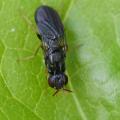



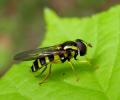
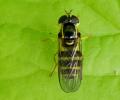

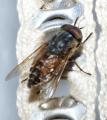
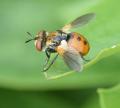



 but don't see the image in the post.
but don't see the image in the post.
